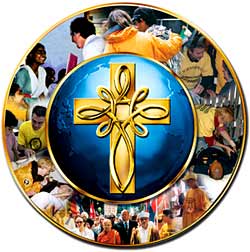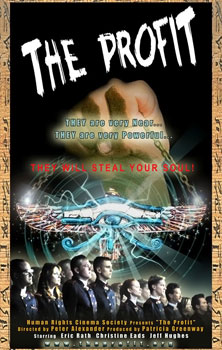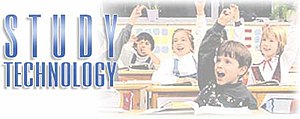The Free Zone, “Freezone”, or more recently identified as Independent Scientology, comprises a variety of non-affiliated independent groups, organizations, and individuals who practice Scientology beliefs and techniques independently of the Church of Scientology (CoS). Such practitioners range from those who closely adhere to the original teachings of Scientology's founder, L. Ron Hubbard, to those who have adapted their practices so far that they are almost unrecognizable as Scientology.
The Church of Scientology maintains a wide variety of beliefs and practices. The core belief holds that a human is an immortal, spiritual being (thetan) that is resident in a physical body. The thetan has had innumerable past lives, some of which, preceding the thetan's arrival on Earth, were lived in extraterrestrial cultures. Based on case studies at advanced levels, it is predicted that any Scientologist undergoing auditing will eventually come across and recount a common series of events.

A Volunteer Minister (VM) is a member of Scientology sent to a disaster zone to spread the doctrine of Scientology and provide disaster relief. The program was created in the 1970s by Scientology founder L. Ron Hubbard. As of 2016, the volunteer ministers has a network of over 9,000 trained ministers.

Criminon is a program for rehabilitating prisoners using L. Ron Hubbard's teachings. Criminon International, a non-profit, public-benefit corporation managing the Criminon program, was spawned from Narconon International in 2000, and is part of Association for Better Living and Education's public outreach programs. Criminon is promoted by the Church of Scientology International. Independent experts contend that methods used by the program are not supported by any scientific studies.

Applied Scholastics is a non-profit corporation founded in 1972 to promote the use of study techniques created by L. Ron Hubbard, the founder of the Church of Scientology. Hubbard called his theories on learning and education "study technology". Applied Scholastics runs the "Hollywood Education and Literacy Project" (HELP), the World Literacy Crusade, "Education Alive", and the "Literacy, Education and Abilities Program" (LEAP).

The Church of Scientology is a group of interconnected corporate entities and other organizations devoted to the practice, administration and dissemination of Scientology, which is variously defined as a cult, a business, or a new religious movement. The movement has been the subject of a number of controversies, and the Church of Scientology has been described by government inquiries, international parliamentary bodies, scholars, law lords, and numerous superior court judgements as both a dangerous cult and a manipulative profit-making business. In 1979, several executives of the organization were convicted and imprisoned for multiple offenses by a U.S. Federal Court. The Church of Scientology itself was convicted of fraud by a French court in 2009, a decision upheld by the supreme Court of Cassation in 2013. The German government classifies Scientology as an anti-constitutional sect. In France, it has been classified as a dangerous cult. In some countries, it has managed to attain legal recognition as a religion.
Scientology terminology consists of a complex assortment of jargon used by Scientologists in conjunction with the practice of Scientology and in their everyday lives. It is difficult if not impossible to understand Scientology without understanding its terminology the way Hubbard defines it.

The Church of Spiritual Technology (CST) is a California 501(c)(3) non-profit corporation, incorporated in 1982, which owns all the copyrights of the estate of L. Ron Hubbard and licenses their use. CST does business as L. Ron Hubbard Library.

The Flag Building, also referred to as the Super Power Building, is the largest building in Clearwater, Florida. It is owned by the Church of Scientology and was built principally to deliver the Super Power Rundown, a high-level Scientology training course intended to train Scientologists to use what Scientology describes as all of their 57 "perceptics" or senses. The interior of the building contains training suites, course rooms, theaters and various devices intended to test these "perceptics," including a "time machine", an anti-gravity simulator, an "infinite" pit, and a pain station.

Youth for Human Rights International (YHRI) is an American non-profit organization. Founded and largely staffed and financed by Scientologists, its stated mission is "To teach youth around the globe about human rights, thus helping them to become valuable advocates for the promotion of tolerance and peace."
OT VIII or OT 8 is the highest current auditing level in Scientology. OT VIII is known as "The Truth Revealed" and was first released to select high-ranking public Scientologists in 1988, two years after the death of Scientology's founder, L. Ron Hubbard. OT VIII is only delivered to members of the Church of Scientology in one place—aboard the organization's private cruise ship, the Freewinds, and is additionally available from independent Scientology groups. There are a few advanced auditors that are able to deliver the level to those who meet the prerequisites.

The Profit is a feature film written and directed by Peter N. Alexander. The film premiered at the Cannes Film Festival in France in 2001. Distribution of the film was prohibited by an American court order which was a result of a lawsuit brought by the Church of Scientology, although the filmmaker says that the film is not about Scientology. As a result, The Disinformation Book Of Lists and The Times have characterized The Profit as a banned film in the United States.
Mace-Kingsley Ranch School was a Church of Scientology affiliated ranch school for children aged 8 to 17 set in a rural environment. The School opened in 1987 and was initially based in Palmdale, California before moving to a property in the Gila Wilderness, New Mexico. It was eventually closed in 2002 and its certificate of incorporation was revoked. The school's curriculum focused heavily on the teachings of Scientology. Students were subjected to pseudo-scientific processes such as the Purification Rundown and daily auditing. A large portion of each day was dedicated to cleaning and general manual labor. The school received criticism over the years for the treatment of students under its care. Students have reported cases of being underfed as well as being beaten, whipped and publicly humiliated as forms of punishment.
Scientology is a set of beliefs and practices invented by American author L. Ron Hubbard, and an associated movement. It has been variously defined as a cult, a business, or a new religious movement. The most recent published census data indicate that there were about 25,000 followers in the United States ; around 1,800 followers in England (2021); 1,400 in Canada (2021); and about 1,600 in Australia (2016). Hubbard initially developed a set of ideas that he called Dianetics, which he represented as a form of therapy. This he promoted through various publications, as well as through the Hubbard Dianetic Research Foundation that he established in 1950. The foundation went bankrupt, and Hubbard lost the rights to his book Dianetics in 1952. He then recharacterized the subject as a religion and renamed it Scientology, retaining the terminology, doctrines, and the practice of "auditing". By 1954 he had regained the rights to Dianetics and retained both subjects under the umbrella of the Church of Scientology.
e.Republic, Inc. is a Folsom, California-based research and media company. It publishes Government Technology Magazine, a publication covering the role of information technology in state and local government, along with three other publications. e.Republic focuses on connecting private IT companies with government and education agencies. e.Republic organizes 100+ events each year for government and education IT officials.
Keeping Scientology Working is the most important policy in the Church of Scientology, serves as the keystone for every action, and is mandated to be presented as the first document at the beginning of every single course of study in Scientology. Written by founder of Scientology L. Ron Hubbard, and originally issued in 1965, it was reissued in 1970 and again in 1980. It lays out ten points concerning the exact application and preservation of "Standard Tech" in Dianetics and Scientology, and the eradication of "non-standard tech", more commonly referred to in Scientology as "squirreling."

New Village Leadership Academy (NVLA), also known as New Village Academy, was a private elementary school located in Calabasas, California, USA. Indian Hills High School previously used the campus, and in 2008 actor Will Smith funded New Village Academy and leased the Calabasas facilities for three years.
Not related to San Diego Second Chance Program - a nonprofit organization operating in San Diego, California.
Scientology in Pakistan is said to be followed among a very small number of people, mainly from the middle and upper classes of Karachi. The Dianetics Centre of Karachi for Personal Excellence, located in Gulshan-e-Iqbal, is affiliated with the Church of Scientology. The center provides introductory courses, individual counseling and life improvement courses.








